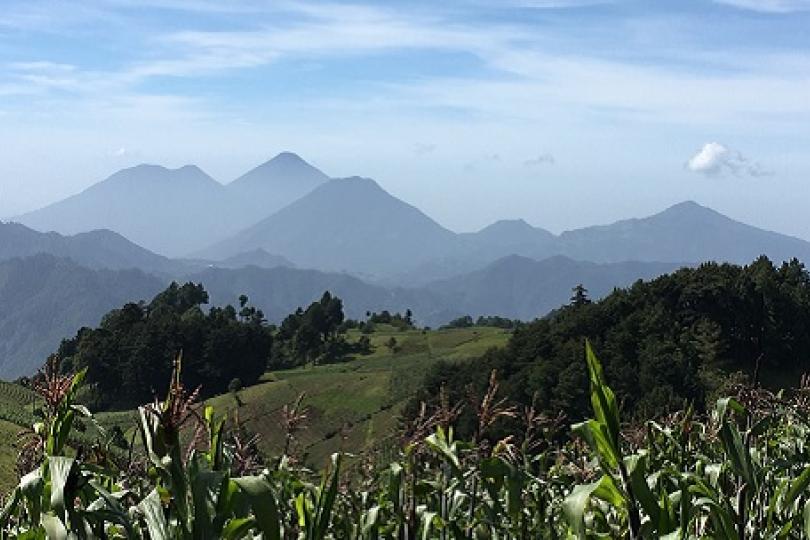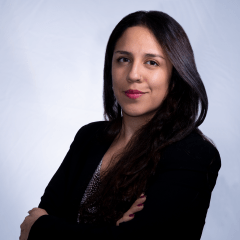Policy options to address climate induced displacement from the Northern Triangle
Editor's note: Original press release by the University Network for Human Rights, Cambridge, MA, April 22, 2021.
As climate change continues unabated, the people of Central America will disproportionately feel its effects and, as a result, experience displacement. Immigration and human rights experts from Harvard Law School, Yale Law School, and the University Network for Human Rights have published a 90-page report calling on the Biden administration to address this issue.
“Experts project that by 2050, climate change will displace nearly four million people across Mexico and Central America. We cannot wait another twenty-five years to address these issues. The Biden administration must reform our immigration infrastructure now,” said Clinical Professor of Law Deborah Anker at Harvard Law School, a co-author of the report. “Earth Day, is a wake up call for all of us to come to terms with the human consequences of climate change.”
This white paper examines the large-scale migration of residents from the Northern Triangle, the geographic formation made up of El Salvador, Guatemala and Honduras. It analyzes the impacts of climate change on migration and its relationship to current and future migration flows. The paper charts a course forward, recommending legislative and administrative measures in seven areas that, if adopted, would ensure greater protection for those who flee environmental disaster. These measures include the expansion of temporary protection status, the creation of a new “climate visa,” and an enhanced definition of the “public interest” to encompass the climate and migration nexus.
“The United States has played a leading role both in causing climate change and in contributing to the long history of political instability in Latin America. To right these wrongs, the United States must now be a leader in immigration reform. It must improve its current policies to ensure that those who are forced to migrate due to climate change may do so with dignity and respect,” said Camila Bustos of the University Network for Human Rights, another co-author and a 2020 Switzer Fellow.
“The time to act is now,” urged Jeffrey S. Chase, former immigration judge. “I’ve seen the consequences of inaction in my courtroom and in my work for decades. We need to address this matter with the urgency it demands.
The experts’ report documents the deteriorating environmental conditions causing people to flee toward the United States from Central America. The Northern Triangle has already seen both increased severe weather events and long-term climate change. Last year, Hurricane Eta and Iota ravaged Central America, marking the most active storm season on record. The convergence of the hurricanes’ impact, the COVID-19 pandemic, and pre-existing socioeconomic vulnerabilities in the region will continue to push people from their homes, into urban centers, and ultimately, into the United States.
“Those displaced by climate change maintain their human rights to physical security and dignity. By implementing practical changes within the existing immigration and asylum framework, the Biden administration could make an outsized impact on the wellbeing of millions of people in the coming decades,” said John Willshire Carrera, Co-Assistant Director of the Harvard Immigration and Refugee Clinic at Greater Boston Legal Services.
###
About the Harvard Immigration and Refugee Clinical Program
For thirty years, Harvard Law School’s Immigration and Refugee Clinical Program (HIRC), in partnership with Greater Boston Legal Services, has focused on direct representation of individuals applying for U.S. asylum and related protections, as well as representation of individuals who have survived domestic violence and other crimes and/or who seek avoidance of forced removal in immigration proceedings pursuant to various forms of relief. HIRC is also involved in appellate and policy advocacy at the local, national, and international levels.
About the Harvard Law School Immigration Project
The Harvard Law School Immigration Project (HIP) is a student practice organization that serves immigrant communities with high-quality advocacy. Student advocates from HIP regularly engage in international refugee assistance, policy research and advocacy, and community outreach in the Greater Boston area.
About the Yale Immigrant Justice Project (IJP)
The Yale Immigrant Justice Project (YIJP) is a student practice organization located within Yale Law School. YIJP supports community organizations working on immigrants’ rights issues in the Greater New Haven area. In addition, YIJP works with local, regional, and national immigrants’ rights organizations on strategic litigation, direct services, and advocacy surrounding immigrant justice.
The Yale Environmental Law Association (YELA)
The Yale Environmental Law Association (YELA) provides a home for students interested in environmental law and concerned about the climate crisis. YELA draws attention to all aspects of environmental law, environmental justice, and related fields through YLS community events, speakers and reading groups, and opportunities to connect and collaborate with other campus groups. YELA also serves as a hub for climate and environmental activism at YLS and beyond. YELA places special emphasis on the interdisciplinary, multifaceted character of environmental law and its relevance to a wide range of legal and policy issues
About the University Network for Human Rights
The University Network for Human Rights is a human rights advocacy organization housed on the campus of Wesleyan University in Middletown, CT. It partners with advocacy organizations and communities affected or threatened by abusive state, corporate, or private conduct to advance human rights in the US and abroad. The University Network also facilitates supervised engagement in the practice of human rights at colleges and universities in the United States and across the globe; trains undergraduate students in interdisciplinary human rights protection and advocacy; and collaborates with academics and human rights practitioners in other parts of the world to foster practical, interdisciplinary programs in human rights. Learn more at https://www.humanrightsnetwork.org. Find UNHR on Twitter at @UnitedForRights.

